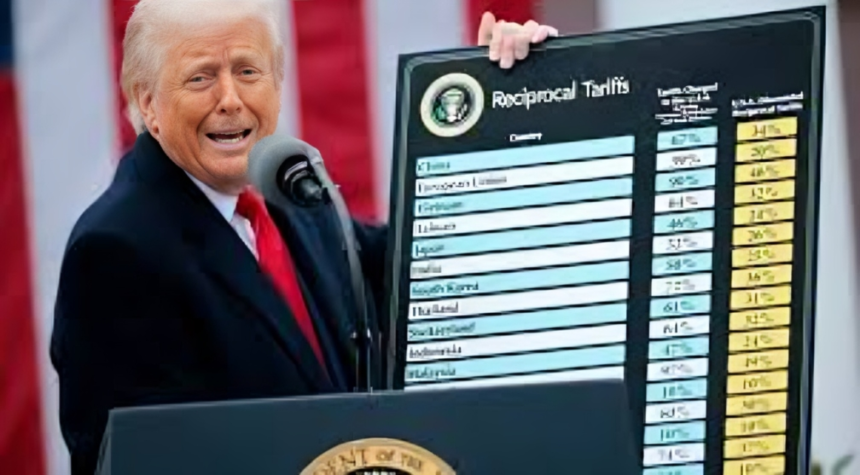In a major shift in international trade policy, U.S. President Donald Trump has introduced a broad 10% baseline tariff on all U.S. imports, alongside reciprocal tariffs targeting countries that impose higher duties on American exports. Under this framework, Nigerian exports to the U.S. will now be subject to a 14% tariff, in contrast to the 27% duty the U.S. claims to encounter when exporting goods to Nigeria.
The announcement, made during a high-profile Rose Garden event titled “Liberation Day,” marks one of the most significant changes in trade policy in recent history. This move challenges the long-standing free-trade principles that have governed global commerce since World War II. Trump framed the decision as the dawn of a new era of “fair trade,” asserting that the objective is to strengthen American industries, enhance domestic manufacturing, and eliminate trade barriers that he argues have historically placed U.S. businesses at a disadvantage.
The new tariff structure takes immediate effect, impacting trade with over 50 countries, including economic giants like China, India, Japan, and the European Union, as well as developing markets across Africa, Asia, and Latin America.
According to data from Nigeria’s National Bureau of Statistics, trade between Nigeria and the U.S. amounted to N31.1 trillion between 2015 and 2024. Over this period, Nigeria imported N16.4 trillion worth of goods from the U.S., while Nigerian exports made up 8.7% of the country’s total global trade. However, bilateral trade has been on a downward trend, primarily due to a decline in U.S. crude oil purchases from Nigeria.
The newly imposed tariffs could place further strain on trade relations between both nations, as Nigerian exporters will now face increased costs when entering the U.S. market. Given that crude oil has traditionally constituted a significant portion of Nigeria’s exports to the U.S., analysts caution that the additional duty may prompt Nigeria to further diversify its trade relationships, potentially strengthening economic ties with regions such as the European Union, the United Kingdom, and Asia.
Central to Trump’s trade doctrine is the principle of “reciprocal tariffs,” a policy he believes will restore equilibrium in global commerce. Under this approach, the U.S. applies tariffs equivalent to half of what its trade partners impose on American goods, aiming to balance the trade landscape.
During a separate event branded “Make America Wealthy Again,” the administration displayed a list of countries with the most restrictive trade barriers against the U.S. This list included Vietnam, Cambodia, and Bangladesh, all of which reportedly impose tariffs exceeding 70% on American exports. In response, U.S. import duties on their goods will now be recalibrated to mirror those high tariffs.
The announcement has sparked widespread concern among international trade partners, many of whom are expected to retaliate with countermeasures. While the Trump administration argues that these tariffs will stimulate American industry and job growth, critics warn that they could lead to trade disputes, disrupt global supply chains, and raise costs for both businesses and consumers.
For Nigeria, these tariffs introduce additional economic hurdles at a time when the country is already contending with a depreciating currency, rising inflation, and declining oil revenue. The increased cost of exporting to the U.S. may push Nigerian businesses to explore alternative markets or negotiate trade deals that mitigate the impact of the new tariff structure.
As Trump’s aggressive trade policies reshape the global economic landscape, Nigeria and other affected nations will need to rethink their economic strategies to navigate the evolving challenges and opportunities in international trade.








